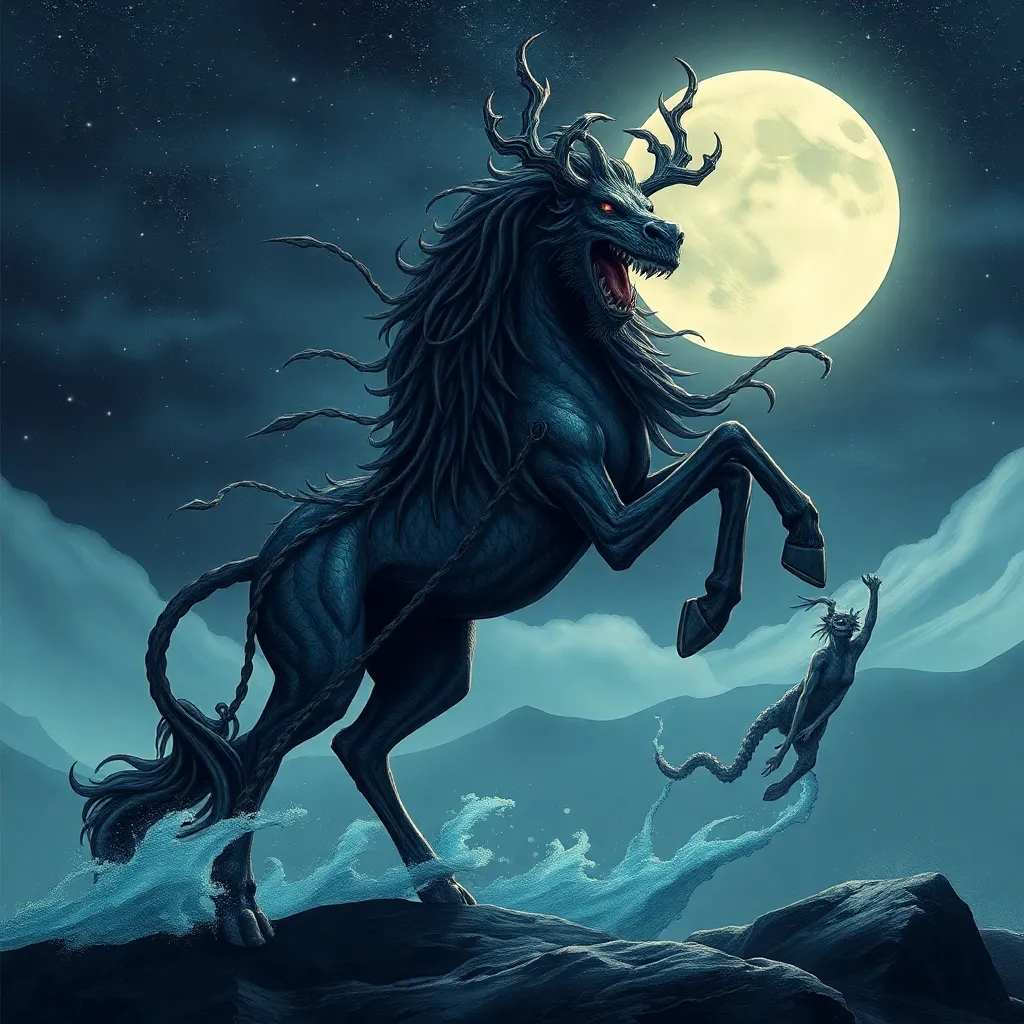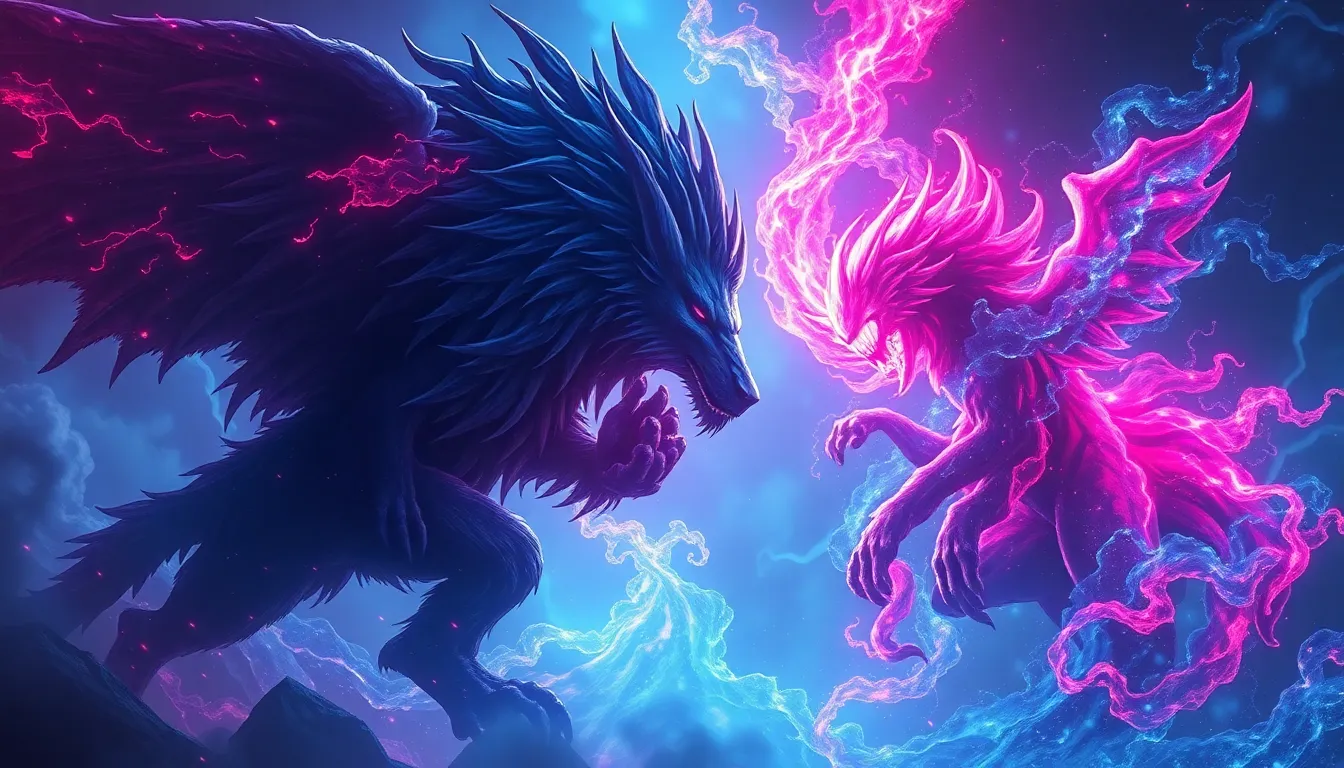Sleipnir Tales: The Japanese Myths of the Yōkai and the Strange Creatures of Japan
I. Introduction to Yōkai and Japanese Mythology
The world of Japanese mythology is rich and diverse, filled with an array of supernatural beings known as yōkai. These creatures, which can be seen as spirits, monsters, or strange entities, have captivated the imagination of the Japanese people for centuries. They play a vital role in cultural storytelling, often embodying moral lessons, societal fears, and the mysteries of nature.
The concept of yōkai transcends mere folklore; it is deeply rooted in Japan’s historical and cultural context, reflecting the values and beliefs of the society that created them. Understanding yōkai opens a window into the collective psyche of Japan, revealing how these mythical entities serve as a bridge between the natural and supernatural worlds.
II. Origins of Yōkai: Ancient Beliefs and Folklore
The origins of yōkai can be traced back to ancient Japanese beliefs, particularly those associated with Shintoism. In Shinto, everything in nature is imbued with a spirit, and yōkai often embody these spiritual elements. They are manifestations of the natural world, representing the fear and reverence people have toward nature.
Animism also plays a critical role in the creation of yōkai. The belief that natural objects possess souls has resulted in countless tales of spirits inhabiting trees, rivers, and mountains. This relationship between humanity and nature laid the groundwork for the folklore that would evolve into the rich tapestry of yōkai stories we know today.
Historical texts, such as the Nihon Shoki and Konjaku Monogatari, contain early references to yōkai, showcasing their prominence in Japanese culture from as early as the 8th century. These texts not only document tales of yōkai but also reveal the moral and ethical lessons embedded within them.
III. Types of Yōkai: A Diverse Pantheon
Yōkai can be classified into various categories based on their characteristics and behaviors. The following are some common classifications:
- Spirits: Ethereal beings that often embody natural elements or human emotions.
- Monsters: Creatures that may pose a threat to humans, often representing fears of the unknown.
- Supernatural beings: Entities that defy the laws of nature and exist outside the realm of the human experience.
Among the most notable yōkai are:
- Kitsune: Fox spirits known for their intelligence and magical abilities, often serving as protectors or tricksters.
- Tengu: Bird-like creatures that are skilled warriors, often depicted as protectors of the mountains.
- Rokurokubi: Beings that appear as ordinary humans by day but can stretch their necks at night, embodying themes of duality.
Regional variations of yōkai exist throughout Japan, with each area boasting its own local legends and stories. This diversity enriches the yōkai mythology, making it a fascinating subject of study.
IV. The Connection Between Yōkai and Human Emotion
Yōkai are often seen as reflections of human fears, desires, and societal issues. They embody the struggles and challenges faced by individuals and communities, serving as a canvas for exploring complex emotions. Many yōkai tales carry moral lessons, warning against hubris, greed, or neglect of nature.
Psychological interpretations of yōkai stories reveal how these beings can symbolize inner conflicts or societal anxieties. For instance, the fear of the unknown is often personified through malevolent yōkai, while benevolent spirits may represent hope and protection.
V. Modern Interpretations of Yōkai in Popular Culture
In contemporary times, yōkai have experienced a resurgence in popular culture, appearing in various forms of media. Notable representations include:
- Literature and manga: Series like GeGeGe no Kitarō bring yōkai into the limelight, showcasing their adventures and interactions with humans.
- Anime and film: Studio Ghibli’s Spirited Away features yōkai as integral characters, blending traditional mythology with modern storytelling.
- Video games: Titles like Yokai Watch engage younger audiences, introducing them to the fascinating world of yōkai.
This modern reinterpretation of yōkai demonstrates their enduring relevance, adapting to the tastes and interests of new generations while preserving the essence of their origins.
VI. The Role of Yōkai in Japanese Festivals and Rituals
Yōkai play a significant role in various Japanese festivals and rituals, celebrating their presence and importance in cultural heritage. Events such as Obon and Matsuri honor yōkai and spirits, facilitating a connection between the living and the supernatural.
The significance of yōkai-themed events lies in their ability to preserve folklore and foster community engagement. These gatherings often include:
- Traditional performances and storytelling.
- Artisan crafts depicting yōkai.
- Rituals to appease or celebrate yōkai, ensuring harmony between worlds.
VII. Encountering Yōkai: Personal Stories and Anecdotes
Contemporary sightings and experiences related to yōkai continue to intrigue both locals and tourists. Many individuals share personal anecdotes of encounters, contributing to the ongoing folklore surrounding these beings.
The impact of yōkai on local tourism has become evident, with many regions capitalizing on their unique yōkai stories to attract visitors. Festivals, museums, and guided tours offer insights into the rich tapestry of yōkai history.
Interviews with yōkai enthusiasts and folklorists provide further depth to the understanding of these creatures, showcasing the passion and dedication of those who work to preserve these stories.
VIII. Conclusion: The Enduring Legacy of Yōkai in Japanese Culture
The legacy of yōkai in Japanese culture endures, evolving with each generation while maintaining a connection to its roots. As society changes, so do the tales of yōkai, adapting to contemporary issues and reflecting the complexities of modern life.
Preserving yōkai mythology is essential for future generations, as it not only enriches cultural identity but also fosters a sense of wonder and curiosity about the world. The relevance of yōkai continues to resonate, reminding us of our shared fears and dreams, as well as our connection to nature and the supernatural.



